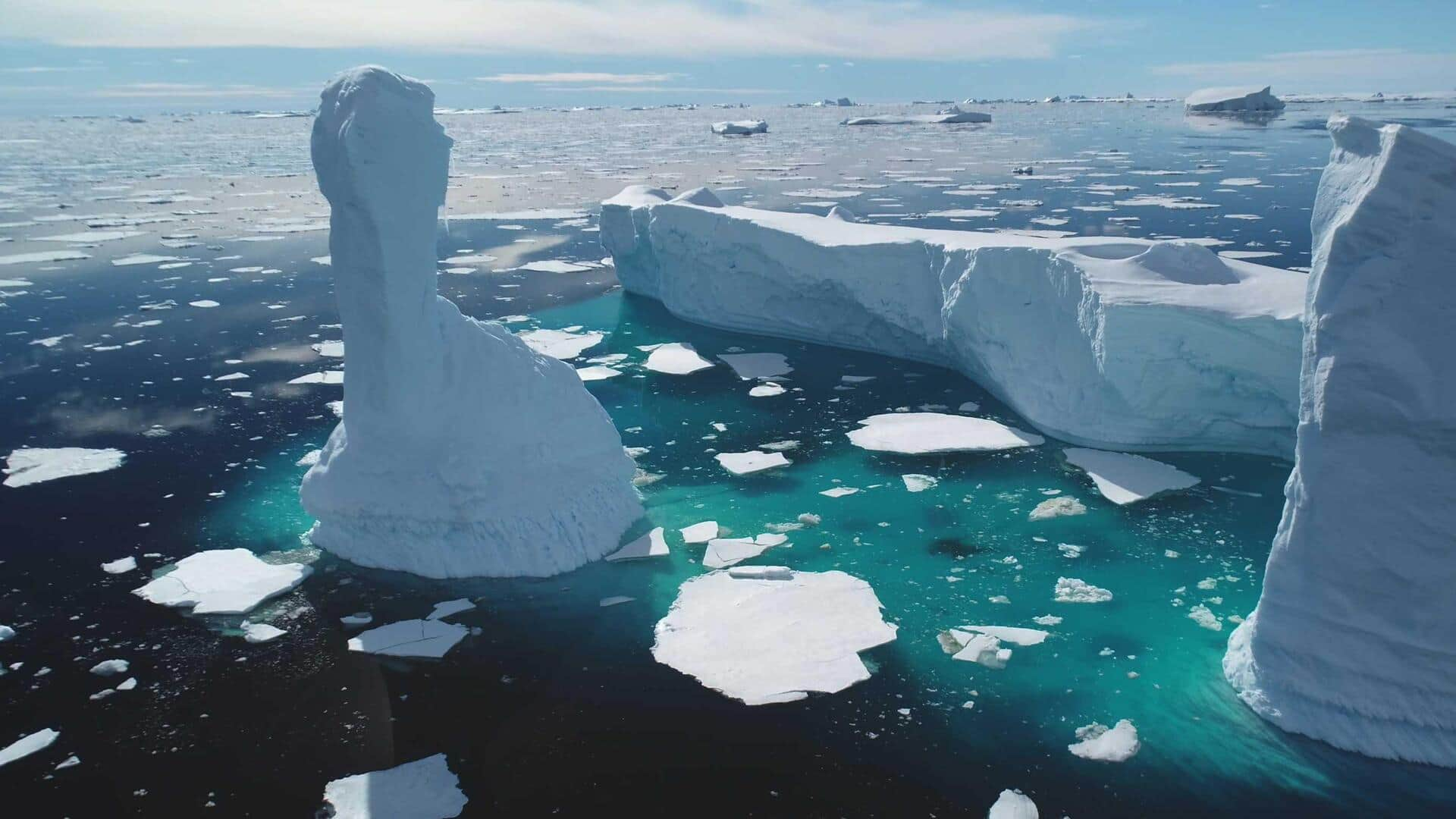
Longer days ahead? Climate change is affecting Earth's rotation
What's the story
Climate change, primarily driven by global warming, is causing significant alterations to the Earth's rotation and the length of our day, according to researchers at ETH Zurich. The melting of ice masses due to climate change is shifting the planet's axis of rotation and changing its speed. "This means that a shift in mass is taking place, and this is affecting the Earth's rotation," said Benedikt Soja, Professor of Space Geodesy at ETH Zurich.
Planetary pirouette
Melting ice masses shift Earth's axis, slow rotation
The melting ice blocks on the Earth's surface are causing a shift in mass, similar to a figure skater extending her arms during a pirouette and slowing down due to increased physical inertia. This principle, known as the law of conservation of angular momentum, also governs Earth's rotation. As Soja explains, if the Earth turns more slowly due to climate change, our days will get longer.
Time stretch
Climate change extends day length by milliseconds
According to the study, climate change is increasing the duration of the day by a few milliseconds from its current 86,400 seconds. This increase is due to water flowing from the poles to lower latitudes, which slows down Earth's rotational speed. Another factor slowing down Earth's rotation is tidal friction caused by the Moon. If greenhouse gas emissions continue to rise and global warming intensifies accordingly, this could have a greater impact on Earth's rotational speed than the Moon's effect.
Axis alteration
Melting ice affects Earth's axis and polar motion
Shifts in mass on Earth's surface and interior caused by melting ice also alters axis rotation. This means that points where the axis rotation meets Earth's surface move, a phenomenon known as polar motion. Over a longer timeframe, this motion amounts to about 10 meters per 100 years. Using AI models to study polar motion, the researchers showed how Earth's rotational poles have moved since 1900. Their results align with real data from astronomical observations and satellites.
Navigational nuances
Earth's rotation shifts impact space navigation
Changes in Earth's rotation, even if slow, must be taken into account in space navigation. "Even a slight deviation of one centimeter on Earth can grow into a deviation of hundreds of meters over the huge distances involved," sid Soja. The research also revealed that human activity has significantly modified fundamental aspects of the planet's physical characteristics, such as its rotation. Extreme carbon emissions could make global warming a more dominant force than the Moon's tidal forces on Earth's rotation.
Climate solutions
Mitigation strategies needed to counter melting ice effects
To mitigate the effects of melting ice, diverse strategies are needed, including reducing greenhouse gas emissions, preventing glacial ice sheets from melting, and capturing and sequestering carbon. In general, the melting of ice is changing both the surface and interior dynamics of our planet. The research underscores the significant impact human activity has on Earth's physical characteristics and emphasizes the need for immediate action to counteract these changes.